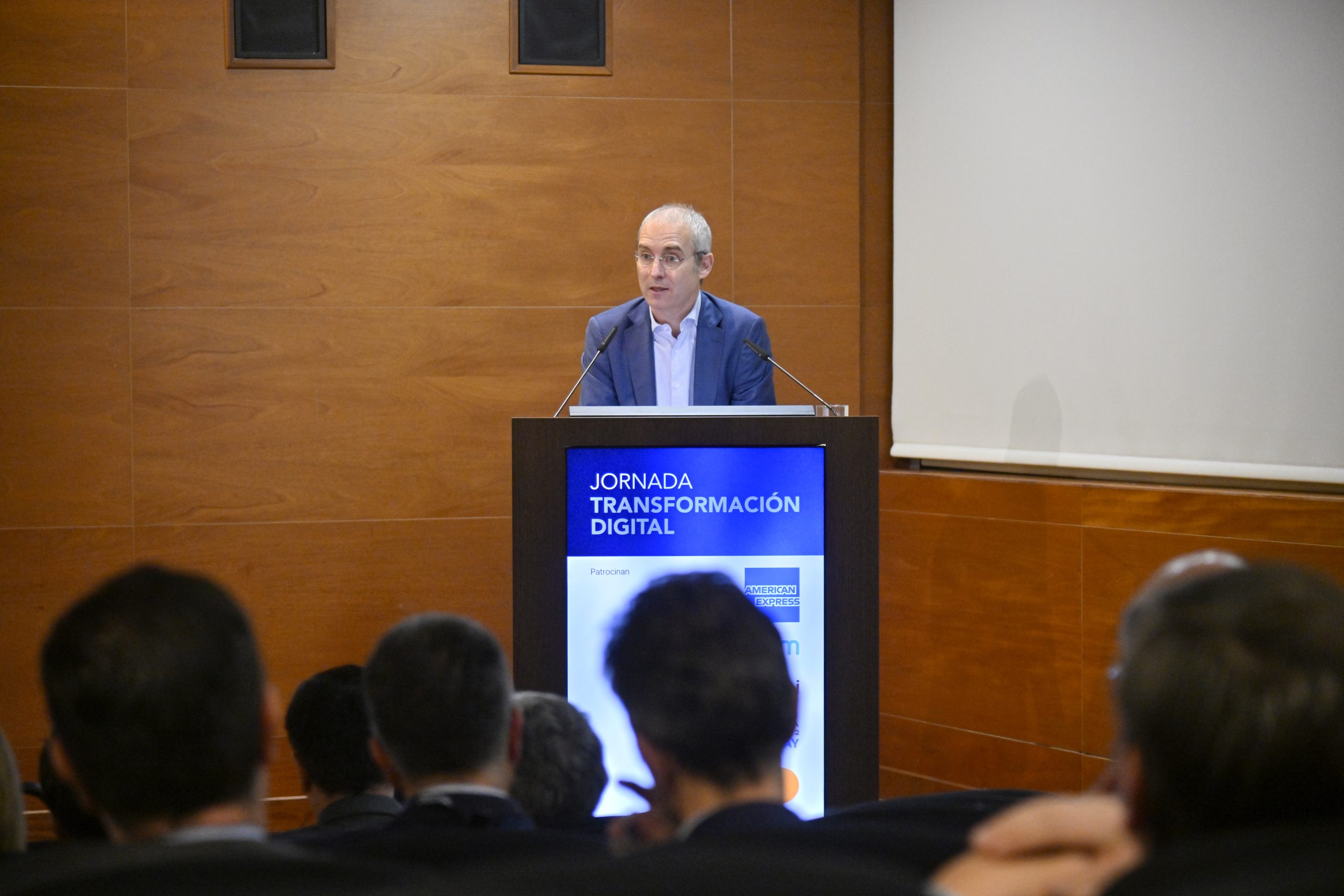
The event brought together banks, processors, fintechs, card schemes and retailers to foster collaboration between all stakeholders in the payments chain, as well as to gain insight from regulatory and supervisory bodies
The issues addressed included: analysis of future payments regulation (PSD3, PSR and FIDA, among others) and its impact on the sector, innovation, growth in the use of instant transfers in retail or the potential advent of the digital euro. In addressing all these issues, all participants had a common goal: to improve security, user experience and competitiveness
MADRID, 1 DECEMBER 2023. Cecabank, Spain's leading custodian bank and provider of payment, reporting and treasury solutions for all types of financial institutions and corporations, and AECOC, one of the country's main business associations comprising mainly manufacturers and distributors from multiple sectors, have organised the AECOC-Cecabank Payment Systems Conference. The event, held on 29 November at the Cecabank auditorium, sought to foster dialogue between financial institutions, fintechs, schemes and retailers, with the aim of streamlining and improving processes along the chain, discussing the challenges and opportunities facing the retail sector in the light of new payment methods, and encouraging the exchange of experiences and best practices.
The digitalisation of society, technological advances, social changes and the modernisation of points of sale have created new shopping trends as well as new forms of payment. In Spain, according to the Bank of Spain's ‘Study of cash usage habits 2023’[1], cards are the second most important means of payment, highlighting the rise of mobile devices in this area. Currently, 36% of payments in retail outlets are made by card or other means of payment. "Account-to-account" (A2A) payments have also experienced significant growth. One example is the Bizum instant payment scheme, which recorded a 33% increase in e-commerce purchases in the first months of 2023. With the emergence of new payment channels and platforms, technology, regulation and cybersecurity become essential factors in maintaining quality service.
The retail sector faced with new trends in payments
Under the title "Commerce of the future: Leading the change", around 120 professionals from large retailers, financial institutions, fintechs, payment processors and schemes came together to examine the challenges of this new environment, underlining the importance of having a regulation that establishes an adequate competitive framework that enables greater competitiveness in the Eurozone in terms of payments. Along these lines, Ana Puente, Deputy Director General of Sustainable and Digital Finance – General Secretariat of the Treasury and International Finance, pointed out: "We have made progress in recent months by reaching a definitive agreement on the European regulation on instant transfers. We have also had an in-depth look with Member States at the tools offered by the Payment Services Regulation currently under discussion, to advance in the fight against fraud. In the area of the digital euro, there was a convergence of Member States' views on the importance of coordinating the regulatory process with the different phases of the project being developed by the European Central Bank, ensuring that the digital euro adds value for citizens and businesses in the current context of the European payment system.
The conference was opened by Julio César Fernández, Director of Business Development and Operations Support at Cecabank, and Carlos Torme, Director of Expansion at AECOC. The event brought together representatives of major companies from the distribution and financial industry, such as ABANCA, Amazon, Divilo, Mango, Mastercard, EURO 6000, El Corte Inglés, Ibercaja, Miravia, Visa, Waylet (Repsol), Cecabank, CaixaBank, Iberpay and Unicaja, as well as representatives of the Bank of Spain and the General Secretariat of the Treasury and International Finance.
Speakers discussed the need to further reduce payment transaction abandonment rates, the need for future regulations to allow for a more intensive use of Strong Customer Authentication (SCA) waivers, to take advantage of better information sharing for anti-fraud purposes and to encourage a smooth transition from Open Banking to Open Finance. There was agreement on the growing development of instant transfers in Spain, which account for around 55% of all transfers in the Spanish Clearing House, and on the potential importance of the digital euro as a new European retail payment scheme, which still needs to resolve important issues in its preparatory phase, such as its technology, its holding limits, its clearing model and its legal framework.
According to Julio César Fernández, Director of Business Development and Operations Support for Technology Services at Cecabank: "The payments ecosystem is undergoing unprecedented disruption, forcing all participants in the value chain to constantly rethink their strategy. At Cecabank, in our role as a wholesale processor and one-stop shop for payments, our aim is to help entities adapt without friction to all the changes that lie ahead".
For his part, Carlos Torme, Director of Expansion at AECOC, emphasised that: "At AECOC we have been working, via the Contrast Group that we created in 2019, to address the main issues of common interest in the value chain in order to improve and make the payment ecosystem more competitive for the benefit of the end user. To this end, we focus on helping to develop and implement regulations aligned with the objectives of regulators and the interests of the industry, optimising security and user experience and, finally, generating knowledge for the industry".
[1] ‘Study of cash usage habits 2023’ by the Bank of Spain.

